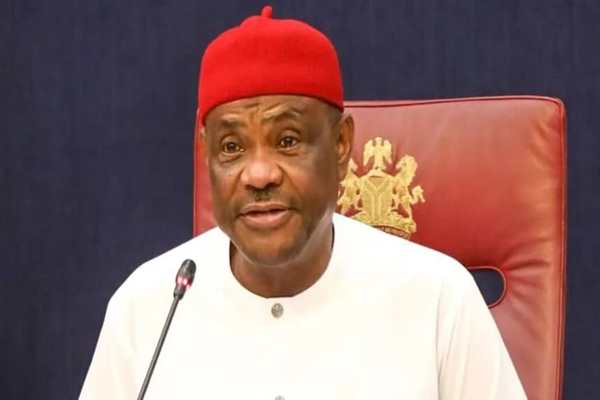Anti-corruption advocates have long argued that the security vote has become a conduit for siphoning.
The Minister of FCT, Nyesom Wike, has asked the House of Representatives to grant him the power to arbitrarily spend funds under the controversial “security vote” scheme.
Wike, while appearing before the House Committee on FCT on Monday to defend the N1.1 trillion budget of his ministry, said he needed the security vote to tackle the insecurity currently ravaging the Nigerian capital.
The security vote is a controversial and corruption-ridden scheme often used by state governors to spend money arbitrarily without any form of transparency.
Anti-corruption advocates have long argued that the security vote has become a conduit for siphoning funds.
“As a governor, my director of SSS can meet me and say ‘We need to carry out an operation this night’. We need N30 million to carry out that operation. I don’t need to meet the accountant, all I need to say is ‘go and take money there,’” Wike told the lawmakers.
Wike, who earned the reputation of being a hardliner during his tenure as governor of Rivers lamented the bureaucratic hurdles he had to contend with as minister of the FCT.
However, the lawmakers did not give the minister any commitment on the request.
Wike has been under fire recently over insecurity in the territory, particularly the activities of kidnappers and armed robbers who were terrorising residents.
The minister recently claimed after a meeting with the Senate that the security situation in the city had improved significantly.
N500 billion loan
Wike is proposing a N1.14 trillion budget, but N500 billion is expected to be sourced from commercial banks, while total internally generated revenue is projected to be N637 billion.
On the expenditure side, the ministry is proposing to spend N726.3 billion on capital expenditure and N421 billion on recurrent expenditure.
Wike also spoke on the hike in personnel cost of the ministry.
He said the increment was to accommodate emoluments of political appointees and in anticipation of new minimum wage.
The sum of N140 billion, representing 12.28 per cent is proposed for personnel costs for the year 2024, compared to an appropriation of the sum of N99.5billion in the year 2023. This shows an increase of the sum Of N41 billion (29 per cent ) as against the revised 2023 Appropriation.
“The increase is to accommodate the emolument of the appointed Mandate Secretaries and other political appointees of the administration, payment of staff promotion arrears, peculiar allowance and staff wage award arrears,” he said.
On the breakdown of the N726.3 billion for capital expenditure, the minister said the government was proposing N29 billion for the Abuja Light Rail Project.
He added that N117.3 billion was for the completion of on-going projects.
Members of the committee made comments and asked questions after Wike’s presentation.
Abdullahi Saidu (APC, Niger), criticised the plan to borrow N500 billion from commercial banks, describing it as expensive.
He urged the minister to consider taking credit from the capital market.
Chairman of the committee, Muktar Betara (APC, Borno) subsequently adjourned the session.
